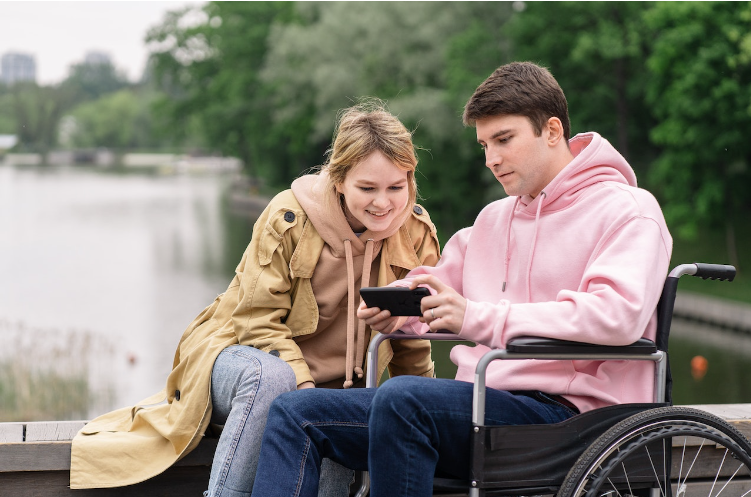Living with a disability can be difficult not only for the person with the disability but also for their family and friends. People with limited mobility may have difficulty with daily activities, making them feel isolated and helpless. As a loved one, it is critical to offer support and encouragement so that they can live their lives to the fullest. This article will review how you can help your disabled loved one.
Creating an Accessible Living Space
Making your home accessible is one of the most important things you can do. This could include making changes to your home, such as installing ramps, widening doorways, or installing grab bars. It is also critical to declutter your living space and remove any impediments to your loved one’s mobility. This will make moving around and performing daily tasks easier for them. If you need assistance finding suitable products, you can visit fantastic mobility aids online store, for instance.
You might also want to talk to an occupational therapist or a disability specialist to get more ideas on making your home more accessible. They can give you practical tips and advice on making your loved one’s home more comfortable and safe.
Encouraging Physical Activity
Physical activity is essential for good health and can be especially beneficial for people with limited mobility. Physical activity, such as stretching, yoga, or light exercises, can help your loved one improve their flexibility, strength, and balance. It can also improve their mood and lower their risk of depression. Before beginning any new exercise routine, consult your loved one’s doctor. You can also consider joining them in their physical activities to make them more enjoyable and provide emotional support. Even a short walk or chair exercise can benefit their physical and mental health.
Providing Emotional Support
Living with a disability can be emotionally draining, so offering your loved one emotional support is critical. This could include listening to them when they need to talk, encouraging them, or simply spending quality time with them. You can refer them to support groups or counseling services if they require additional emotional support. You can help your loved one feel less isolated and more empowered by providing a safe and supportive environment. Furthermore, being patient and understanding with them is critical because they may face unique challenges you may not fully comprehend. Remember, emotional support can make all the difference.
Assisting with Daily Tasks
For people with limited mobility, daily tasks can be difficult, and may require assistance with certain activities. Cooking, cleaning, and running errands are examples of such tasks. Offering to assist with these tasks can make a significant difference in the life of your loved one while also strengthening your relationship. Communicate with your loved one to learn about their needs and preferences. You can also consider using assistive technology, such as a voice-activated assistant or a smart home system, to help them perform daily tasks more independently.
Simple modifications to their daily routine can significantly improve their quality of life.
Taking Care of Your Mental Health by Organizing Your Daily Schedule
Encouraging Independence
While it is critical to provide assistance when necessary, it is also critical to promote independence. People with disabilities may feel like a burden on their loved ones, which can have a negative impact on their self-esteem. Encourage them to take on tasks they can complete on their own to boost their confidence and sense of self-worth. Respecting their autonomy and allowing them to make their own decisions is also critical. You can also encourage them to pursue their hobbies and interests, as this will help them develop a sense of purpose and fulfillment. Helping them maintain their independence can significantly impact their mental well-being.
Getting Involved in Advocacy
Advocacy is a critical component of assisting people with disabilities. Joining disability rights organizations, supporting legislation that protects the rights of people with disabilities, and raising awareness about disability issues are all ways to get involved in advocacy. Advocating for your loved ones and others with disabilities can help to improve their lives and create a more inclusive society.
You can also consider attending disability-related events or conferences and volunteering at disability-related organizations to learn more about disability issues and connect with others who share your passion for disability advocacy.
While caring for a loved one with limited mobility can be difficult, it can also be rewarding. You can help your loved one live a fulfilling life by following the advice mentioned above. Remember to communicate with your loved one and learn about their wants and needs. They can overcome their obstacles and achieve their objectives with your help.
[Related: Mental Health Rights You Need to Know About]

